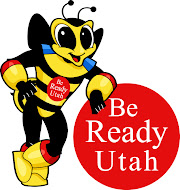HAZARDS
Learn about the hazards that may strike your community, the risks you face from these hazards, and your community's plans for warning and evacuation. You can obtain this information from your local emergency management office or your local chapter of the American Red Cross.
For the following hazards listed, record the risk level for your area and how you can reduce your risk.
Natural Hazards:
- Floods
- Hurricanes
- Thunderstorms and Lightning
- Tornadoes
- Winter Storms and Extreme Cold
- Extreme Heat
- Earthquakes
- Volcanoes
- Landslides and Debris Flow
- Tsunamis
- Fires
- Wildfires
- Hazardous Materials
- Nuclear Power Plants
- Explosions
- Biological Threats
- Chemical Threats
- Nuclear Blasts
- Radiological Dispersion Device (RDD)
WARNING SYSTEMS AND SIGNALS
The Emergency Alert System (EAS) Can address the Nation on a National emergency on a very short notice . Find out if your local radio and TV stations participate in the EAS.
Also National Oceanic & Atmospheric Administration (NOAA) Weather Radio (NWR) broadcast a continuous stream of weather information. Find out if NOAA Weather Radio is available in your area and consider buying a NOAA weather Radio receiver.
EVACUATING YOURSELF AND YOUR FAMILY
When community evacuations become necessary, local officials provide information to the public through the media. In some circumstances, other warning methods, such as sirens or telephone calls, also are used. Additionally, there may be circumstances under which you and your family feel threatened or endangered and you need to leave your home, school, or workplace to avoid these situations.
Evacuations are more common than many people realize. Hundreds of times each year, transportation and industrial accidents release harmful substances, forcing thousands of people to leave their homes. Fires and floods cause evacuations even more frequently. Almost every year, people along the Gulf and Atlantic coasts evacuate in the face of approaching hurricanes.
The amount of time you have to leave will depend on the hazard. If the event is a weather condition, such as a hurricane that can be monitored, you might have a day or two to get ready. However, many disasters allow no time for people to gather even the most basic necessities, which is why planning ahead is essential.
COMMUNITY PLAN
Be sure to talk to your local officials and ask them the following questions pertaining to your community's disaster / emergency plans.
Does my community have a plan?
Can I obtain a copy?
What does the plan contain?
How often is it updated?
What should I know about the plan?
What types of hazards does it cover?
SCHOOL EMERGENCY PLAN
It's important to also know your children's school emergency plans as well.
- Ask how the school will communicate with families during a crisis.
- Ask if the school stores adequate food, water, and other basic supplies.
- Find out if the school is prepared to shelter-in-place if need be, and where they plan to go if they must get away.
For more information on developing emergency preparedness plans for schools, please log on to the U.S. Department of Education at www.ed.gov/emergencyplan
WORKPLACE PLANS
Make sure that your workplace has a building evacuation pan that is regularly practiced.
- Take a critical look at your heating, ventilation and air conditioning system to determine if it is secure or if it could feasibly be upgraded to better filter potential contaminants, and be sure you know how to turn it off if you need to.
- Think about what to do if your employees can't go home.
- Make sure you have appropriate supplies on hand.
The above information is found in FEMA's Are You Ready? An In-depth Guide to Citizen Preparedness manual.











No comments:
Post a Comment